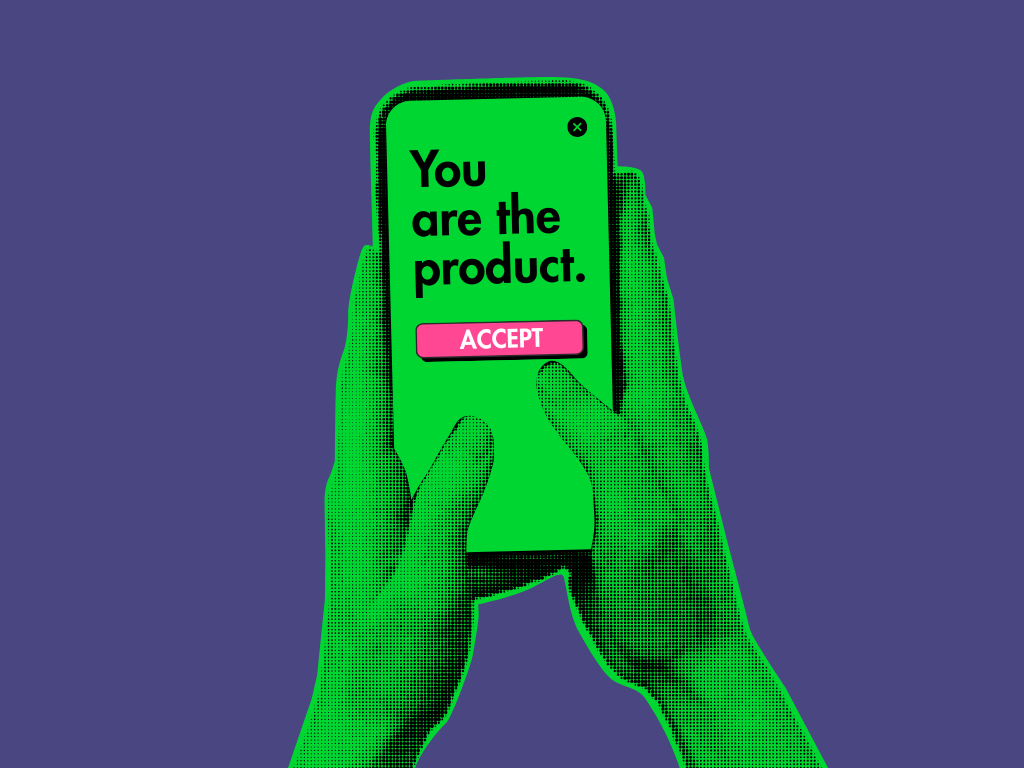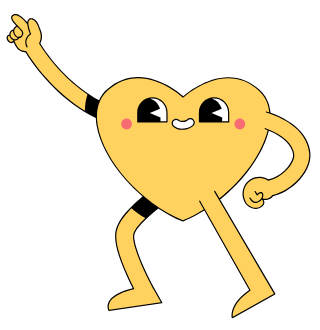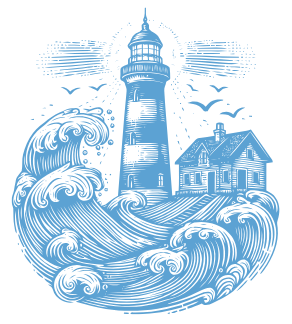We live in a World of Illusions
I am a millennial who grew up on a steady diet of Disney fairy tales and Hollywood happy endings. I grew up, subconsciously, believing that good always triumphs, that if you follow the script (get educated, find a decent job, be positive), you’ll live “a happy life”. In school, we were promised that hard work leads to success; in capitalism’s marketplace, we were sold endless products as the keys to happiness. These were comforting illusions, but they were illusions nonetheless. Like shadows on the wall of a cave.
Stepping into adulthood, it became clear that reality is far messier and more chaotic than the tidy stories we were raised on. The world around us seems to be unraveling, whether it be increased rate of climate disasters, social unrest, political polarisation, or an epidemic of mental health struggles. We find ourselves living through an overlapping of crises where our environmental, social and personal worlds are fracturing. And amid this chaos, we find ourselves asking: How do we foster genuine mental strength and clarity, when so much of what we thought we knew turns out to be an illusion?
Leaving the Cave
Plato’s Allegory of the Cave feels uncannily relevant today. In the allegory, prisoners live chained in a cave, facing a wall, mistaking the shadows on that wall for the whole of reality. Many of us modern “prisoners” have been gazing at our own shadows. Shadows in a form of cultural norms, media narratives, institutional beliefs, and taking them as the only truth. We accepted what we were taught. We accepted “success” based on other people’s interpretation of it.
But what happens when someone leaves the cave and sees the sunlight of truth? In Plato’s tale, the freed prisoner is blinded at first by the light of the real world, and when he returns to tell the others, they ridicule him. The prisoners cannot comprehend a reality beyond their familiar shadows.
This is the discomfort we feel when our long-held illusions are shattered.

To leave the cave means to question the illusions we’ve long mistaken for reality. It means realising that much of what we once believed, about success, about institutions, about the way the world works, might have been shadows. Can we ever leave the cave completely? I think life is a continuous journey through nested caves of illusion. We break out of one only to discover another deeper cave of subtler illusions. Every time we think we’ve found the “ultimate truth”, we discover we’re still just seeing shadows cast by a larger fire.
Mental strength, then, starts with humility. With accepting that we all have blind spots and there is always more to learn. Plato puts it, the allegory “urges us to question illusions and embrace the sometimes uncomfortable path toward understanding reality.” In our current state of the world that’s so full of manipulation and spin, stepping out of the cave is not a one-time event, but the ongoing practice of critical thinking and courage.
Freedom in a Manipulated World
As we matured, most of us will start to sense that many of our choices were pre-packaged. That our goals were often chosen for us by societal expectations and corporate advertising, rather than our own deepest values. The philosopher Immanuel Kant drew an important distinction:
“To act freely is not to choose the best means to a given end. It’s to choose the end itself — for its own sake.”
To put it simply, true freedom is not about selecting how to live out the script handed to you. It’s writing your own script in the first place.
But good things in life is never easy to achieve. We live under constant psychological pressure from consumer culture. As the popular Fight Club’s monologue puts it: Advertising has us chasing cars and clothes, working jobs we hate so we can buy shit we don’t need…. We’ve all been raised on television to believe that one day we’d all be millionaires and movie gods and rock stars. But we won’t. And we’re slowly learning that fact. And we’re very, very pissed off.”

It’s an iconic line that captures the bitter truth. From childhood we were fed false gods to worship (fame, wealth and endless consumption), only to find them hollow. We were given means to chase (jobs, purchases, followers) but were rarely encouraged to choose our own ends.
For many millennials, our great war turned out to be internal, a “spiritual war… our Great Depression is our lives”. Consumerism had us believed that buying and achieving are our ways to fulfillment.
Another part of this meaning crisis comes from childhood baggage that many of us carry. Behind the polished Instagram posts, a lot of us are grappling with unresolved trauma and emotional wounds. Many of us had to suppress our true feelings to fit in or to survive tough childhood environments. Layered on top of this is a cultural epidemic of toxic positivity that tells us to “smile through it” and “focus on the good”. Society encourages us to suppress “negative” emotions, signalling that to feel them is a personal failure. In our attempts to appear “strong” and unbothered, we’ve actually made ourselves more fragile, disconnecting from the very feelings that could guide us to a more authentic life.
In this collision of factors from a consumerist culture that sells us false meaning, childhood wounds that leave us hungry for approval, cutthroat competition in school, in work, in life, to a norm of emotional suppression, it has created the perfect storm for a crisis of meaning.
When the World Itself Feels Broken
It’s not just our personal demons that we have to wrestle with, we’re also bombarded by news of global chaos on a daily basis. Following the news feels like the outside world is as troubled as our inner world. Any honest reflection on mental strength today should also acknowledge the context we’re all living in — a planet troubled by crises that can make anyone feel helpless and cynical.

Humanitarian and social crises — even figures of hope are swept into controversy. Climate activist Greta Thunberg recently made waves by speaking out “in solidarity with Palestine and Gaza,” inserting herself into a deeply polarising geopolitical conflict. Her stance drew both praise and hate, highlighting how fraught and divided global discourse has become. Conflicts rage on (over 610 days of conflict in Gaza, and more than 1,200 days of war in Ukraine), violence persist, and younger generation feel compelled to take moral stands on issues our leaders seem unable to resolve.
Environmental breakdown — the planet’s health is in crisis and the evidence is literally inside us. Scientists are now finding microplastics and nanoplastics inside the human body. They’re in our blood, lungs, even in placentas and newborns. We have polluted our world so pervasively that each of us is likely carrying microscopic plastic within our flesh. At the same time, food meant to nourish us is losing its nutrients. A landmark study found 43 fruits and vegetables suffered significant declines in vitamins and minerals in the latter 20th century. Rising CO₂ levels are stripping staples like rice of protein and iron. The very systems that sustain life (air, water and soil) are saturated with toxins and undergoing rapid change.
“There’s much more plastic in our brains than I ever would have imagined or been comfortable with.”
— Matthew Campen, a toxicologist and professor of pharmaceutical sciences at the University of New Mexico. Read More “A Plastic recipe for society suicide”.
Institution and societal collapse — trust in our institutions has hit record lows. We grew up being told to trust the system, the government, the experts, the “adults in charge”. But now we see government deadlocked or corrupted, international institutions failing to prevent wars or climate catastrophe, and social contracts fraying. In many countries, people have lost faith that their leaders and institutions will act in their best interest. This breakdown of trust is fuelling extremism and despair. Our society’s foundations, political stability, social cohesion, even agreement on basic facts have started to disintegrate. The school system we went through often taught obedience to authority and memorisation of facts; it didn’t teach us how to cope when authority figures lie or when facts themselves become contested.

Hyper-consumerism and cultural decay — meanwhile, the culture around us accelerates into absurdity. We’re sold new gadgets and trends at a dizzying pace, urged to consume more and more in the name of economic growth. But this hyper-consumerism is leaving us spiritually empty and financially on edge. Our economies and social validations still very much revolve around what we own and what we display. Coupled with this is a cultural glorification of toxicity in a form of ragebait politics, online hate, celebration of vanity and cruelty as if they were strengths. Basic kindness and decency often feel in short supply when scrolling through the day’s news. Like our collective psyche is in survival mode, lashing out or numbing out, rather than paying more attention to the higher virtues that make life meaningful.
Four Principles of Mental Strength in Everyday Life
Face reality even when it hurts — mental strength starts with a willingness to see things as they are, both in the world and in yourself. It’s the courage of a person who leaves Plato’s cave, even knowing the sunlight will hurt their eyes. It’s confronting uncomfortable truths rather than hiding behind denial and distraction. Whether it’s recognising that a relationship is unhealthy, that you have bias or trauma to address, or that society is on a dangerous path, facing the truth is the first act of strength. As Lao Tzu wrote, “Knowing the constant, we accept things as they are. By accepting things as they are, we are impartial… By being a part of Nature, we are one with the Tao.” In practice, this might mean accepting difficult emotions instead of suppressing them, or acknowledging mistakes instead of defending them. Or breaking your silence when your boundaries are crossed, even if your voice trembles. Or choosing growth over image even when it hurts your pride. Face that truth about yourself without spiralling into shame.
Choose your purpose and practice integrity — in a highly manipulated world, strength is having your own North Star. Take the time to define what genuinely matters to you. Not what you think should matter or what others want. This is the antidote to drifting through life on autopilot. Once you’ve chosen your guiding values or purpose, live in alignment with them as best you can. There’s great strength in consistency between one’s beliefs and actions. It gives you self-respect and builds trust with other people. And remember Kant’s insight: freedom (and by extension strength) is about choosing your ends, not just your means. A strong person might decide, for example, “I value kindness” or “I value creativity”, and then make career and life choices that honour these values, even if it means disappointing those who wanted them to chase prestige or money. This requires a measure of rebellion and independence of mind. You may have to swim against the current of toxic competitiveness or materialism. But each act of integrity, each time you choose principle over convenience, strengthens your mental and moral muscles.
Practice empathy and kindness (true strength is gentle) — despite the dog-eat-dog messages we usually receive, kindness is a profound form of strength. It’s about having the inner security to treat others (and yourself) with compassion even in a harsh or complex situation. Illinois governor JB Pritzker captured this wonderfully in his commencement speech two years ago. “In order to be kind, we have to shut down that animal instinct and force our brain to travel a different pathway,” he said, referring to our primal urge to fear or judge those who are different. “Empathy and compassion are evolved states of being. They require the mental capacity to step past our most primal urges.” Kindness is not weakness. It’s a sign that we’ve mastered our base instincts. It takes strength to stay open-hearted in a world that systemically rewards cruelty. It takes strength to choose understanding over anger when confronted with someone else’s pain or even their hostility. Pritzker noted that many people today wrongly see cruelty as a clever path to power, and kindness as “weak”. But he flips the script: those who rely on cruelty have simply failed to evolve past their fear. The kindest person in the room, he argues, is often the smartest. Mental strength means having the moral courage to be kind in a world that often isn’t.
Embrace acceptance and “flow” with life — finally, mental strength involves a kind of flexibility and trust in the larger process of life. This is where ancient wisdom, like that of Lao Tzu’s Dao De Jing, offers guidance. The Daoist idea of aligning with the “Way” (the natural flow of things) is about not over-controlling or resisting reality. It means wisely discerning what we can and cannot change, and learning to ride the waves rather than drowning in them. Lao Tzu teaches the value of simplicity, patience, and contentment. “If you understand others you are smart. If you understand yourself, you are illuminated… If you overcome yourself, you have strength,” he wrote, highlighting that true power comes from self-mastery and contentment rather than domination. In daily life, embracing acceptance might look like this: when faced with a setback, say, losing a job or a conflict in relationship, a mentally strong person allows themselves to feel the disappointment, but then works with reality as it is. They ask, “What is this situation teaching me? How can I adapt?” rather than shaking their fist at the sky in bitterness. Acceptance also means respecting the rhythm of life. There are times of growth and times of rest, times of gain and times of loss. Mental strength is about yielding when necessary, much like a tree that bends in the storm so it doesn’t break. A Daoist sage would say, be like water. Soft yet persistent, humble yet able to overcome the hardest rock over time. This approach brings a kind of peace, a reminder that we are part of something bigger, and that we don’t have to carry the whole world on our shoulders every second. We do our best, and we also learn to let go and trust the process.
Mental Strength is Quiet, Subtle and Tender
As a kid watching hero stories, I thought that strength was a loud and dramatic thing like slaying the dragon, saving the day, or smiling through pain. Now I see it differently. It’s the parent battling depression who gets up one more day for their kids. It’s people in therapy unpacking their childhood traumas so they don’t pass the pain to their loved ones. It’s Greta Thunberg braving both ocean storms and online hate to stand up for what is right. It’s also those of us who admit we’re scared when we are, who ask for help when we need it, and who give help when we can.
The world will get crazier in the years ahead. But I take solace in knowing that chaos can also be a teacher. Our illusions are being stripped away, and while it’s disorienting, it also means we have a chance to build new foundations on truth rather than falsehood. Plato’s cave reminds us that leaving illusion is a journey, one that requires bravery and companions (yes, we need each other in this process). Kant’s quote about freedom reminds us that we have a choice in what we aim to pursue, even if the world tries to choose for us. The crises unfolding around us are all calling for us to find a new equilibrium, a new source of meaning that isn’t based on shallow ideals.
So, as fellow traveler, I invite you to reflect on the illusions in your own life. What comforting stories might you be clinging to? Where did they come from — Hollywood, your parents, the marketingsphere? And what would happen if you let them go? Mental strength is a journey of awakening. Out of the cave, into the light, and yes, sometimes back into new caves with new shadows to understand. But with each step, we see a little more, and we grow a little more.
“The real wisdom that comes with age is that you gain a greater appreciation for just how much you don’t know.”
— J.B. Pritzker urges us to remain curious, teachable and adaptable.
We don’t know what the future holds in this era of metacrisis. But I believe if we cultivate these qualities, we will not only endure, but perhaps help light the way for others. We align ourselves with truth and compassion so that, come what may, we remain fully and beautifully human.













Yes to all of this 🙏💚
“To put it simply, true freedom is not about selecting how to live out the script handed to you. It’s writing your own script in the first place.”
Such a great post. Thanks so much.
Also love that you referenced Lao Tzu. The heart of Daoism is ziran… the most natural, free, spontaneous, uninhibited version of a thing as it is in and of itself. This is what we long for, right? The place we wanna all wanna go deep down inside.